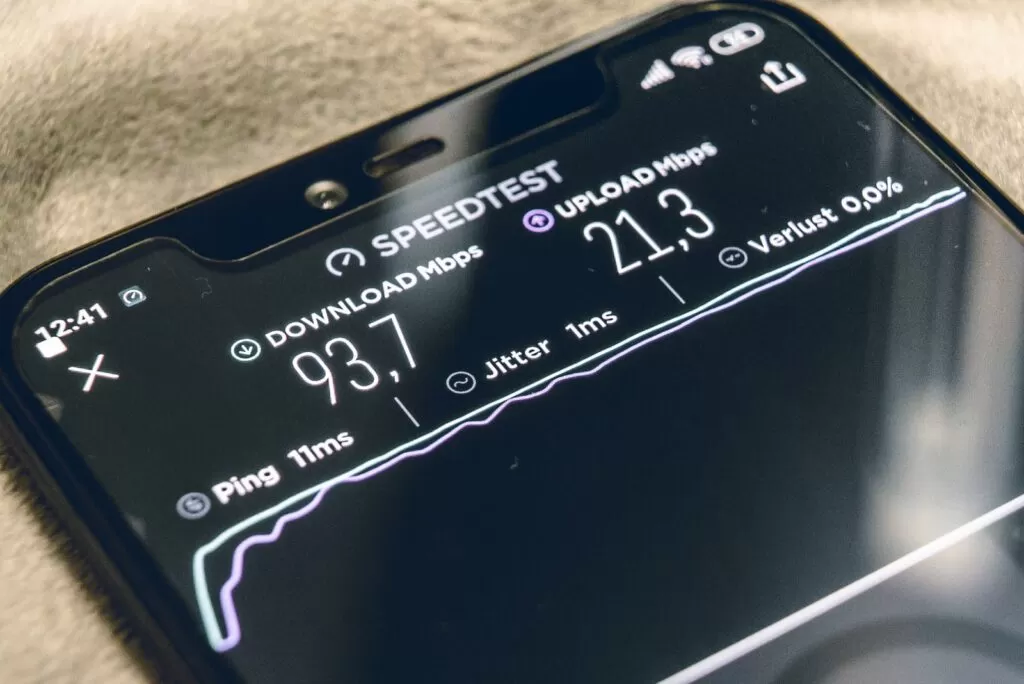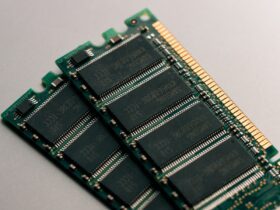If you’ve ever been in an RV, you know how difficult it is to get fast, stable internet speed. While we recommend you minimize screen time whenever traveling, there are situations where an internet connection may come in handy—from navigation to communication purposes. Having an RV while having the chance to explore the country is fun and adventurous, but you may also find yourself in sticky situations where the internet could be of help. It could also be beneficial if you have kids, as it can keep them pretty occupied while you tend to other important tasks.
If you’re planning an RV trip or is currently on one, there are several ways to enjoy high-speed internet in your RV. But first, you must learn how to understand how RV internet works. Let’s begin!
How Does the Internet Work in RVs?
In short, RVs have two main ways to get online: through a wired connection or wireless connection. Wired connections are achieved by using an ethernet cable, which is plugged into the RV’s modem and then into your computer or other devices.
On the other hand, wireless connections make use of RV-specific routers that emit a signal that can be picked up by any device within range—as long as it has the right password, of course. So, regardless if you’re using satellite internet or cellular data, you can get an internet connection in your RV.
Your Internet Access Options for Your RV Trip
There are a few ways you can get online while on your RV trip. And depending on your location, some may work better than others. The most common types of internet access for RVs are cellular data, satellite internet, and public Wi-Fi.
- Satellite Internet
If you’re planning to go off the beaten path or want to camp in remote areas, then satellite internet would be your best option. After all, cellular data won’t work if there are no cell towers in the vicinity. Keep in mind that satellite internet comes with a few downsides, though.
For one, it’s known to be quite expensive—especially if you want unlimited data. In addition, the internet speed can be pretty slow, especially if there’s bad weather. It’s wise to choose a reliable internet provider for your satellite internet just so you can maximize the internet connection in most areas. However, do keep in mind that it may not be as fast as cable or fiber internet.
- Cellular Data
Probably the most popular way people get online while traveling in their RVs is through cellular data. After all, almost everyone has a smartphone these days, which makes it easier to connect to the internet whenever needed. In fact, many newer RVs have built-in 4G LTE modems and routers that give you a fast and reliable connection—as long as there’s cellular service in the area, of course.
The great thing about using cellular data is that it’s relatively cheap, and you can find prepaid SIM cards with data plans specifically for RVs. In addition, if you have several devices that need to be online, you can connect them all to your RV’s hotspot so everyone can enjoy the internet at the same time.
- Public WiFi
Another option for getting online while on your RV trip is by connecting to a public Wi-Fi—although this should only be used as a last resort. After all, public Wi-Fi hotspots are notoriously unsafe and are often unsecured, which means anyone can access your data without you even knowing it. In addition, many public Wi-Fi hotspots have usage limits, which means you might get cut off from the internet even when you still have data left.


But if you don’t mind connecting to public WiFis, you might want to invest in a WiFi extender or repeater to get a better connection every time. It’s also best to use a VPN if you frequently connect to public WiFis to protect your personal data from cyber criminals, especially if you have online banking on your devices.
Factors to Consider in Choosing the Best Internet for Your RV
Now that you know the different types of internet access available for RVs, it’s time to choose which one is best for you. To help you out in finding the best internet for your RV, here are some factors you need to consider:
- The itinerary of your trip
If you spend most of your time in popular campgrounds, at popular lakes and beaches, or with friends and families in cities, you are likely to have access to mobile service, making a mobile hotspot or 4G LTE internet your best choice.
- The frequency of your RV travels
People travel for various lengths of time; some go for weeks at a time, while others only go for weekends. If you’re a frequent traveler, you’ll need a lot more internet data than if you’re a weekender or occasional traveler. It’s better to purchase month-to-month internet access rather than a long-term contract if your travel is seasonal, such as in the summer or winter.
- Internet usage while traveling
How you use the internet while traveling will dictate the best internet option for you. For example, if you plan on streaming movies or spending half of your day gaming or video calling with your friend or loved one, it’s best to get an internet plan with high data and faster speeds.
Boosting Your RV’s Internet Speed
Now that you know all about how to get internet in your RV and the different types of connections available, it’s time to learn how to boost your RV internet speed. After all, there’s nothing more frustrating than having a slow connection—especially when you’re trying to stream your favorite show or download a large file.
Here are a few tips to help you boost your RV internet speed:
- Use an ethernet cable (a.k.a a wired connection)
If you’re using a wireless connection, then the first thing you should do is switch to a wired connection. After all, wired connections are always faster than wireless ones. In addition, they’re also more reliable, which means you won’t have to deal with dropped signals or random disconnections.
To use a wired connection, simply connect an Ethernet cable from your RV’s modem to your computer or other devices. Keep in mind that you might need a longer cable if your RV’s modem is located in a different area—such as in the storage compartment.
- Place your router in an optimal place.
If you’re using a wireless connection, then the placement of your router can have a big impact on your internet speed. After all, the further away your devices are from the router, the weaker the signal will be. So, if you notice that your internet speed is slow, try moving your router to see if that helps.
- Utilize a signal booster.
As mentioned above, it can be very useful to have a WiFi extender or booster, especially if you frequently connect to public WiFi. If you’re using a cellular data connection, it’s also good to have a signal booster. These devices can help amplify the signal, which can give you a faster and more reliable connection. In addition, signal boosters can also help improve your call quality and increase your battery life.
- Disable background applications on your devices.
One of the main reasons why your internet speed might be slow is because of all the background apps running on your device. After all, these apps are constantly using data in the background, which can quickly eat up your data allowance. So, if you want to free up some bandwidth, make sure to disable any unnecessary background apps.
- Use VPN software.
If you’re worried about online security or simply want to access geo-blocked content, then you should definitely use a VPN. Not only will a VPN encrypt your data, but it can also help improve your internet speed by bypassing any internet throttling that your ISP might be doing. It’s beneficial for RVers who usually connect to public WiFis.
- Use a good antenna.
If you’re using a satellite connection, then it’s important to have a high-quality antenna. After all, the quality of your antenna can have a big impact on your internet speed and signal strength. So, if you want to boost your RV’s internet speed, make sure to invest in a quality antenna.
You might well be able to use an external antenna if your computer already has a built-in WiFi router to avoid switching out all of your gadgets every time you change WiFi routers. The antenna should be placed outside the rig, and the wires should be passed through a window or sealed roof access point. To ensure that your walls and roof don’t interfere with the signal, having it outside of your rig is a good idea.
- Avoid using your devices near other electronics.
Another reason why your internet speed might be slow is because of all the other electronic devices in your RV. After all, these devices can emit electromagnetic fields that can interfere with your WiFi signal. So, if you want to avoid this issue, make sure to keep your devices away from other electronics, including microwaves, speakers, televisions, and cordless phones.
Final Thoughts
These are just a few simple tips that can help boost your RV’s internet speed. By following these tips, you should be able to enjoy a faster and more reliable connection on your next RV trip.






























